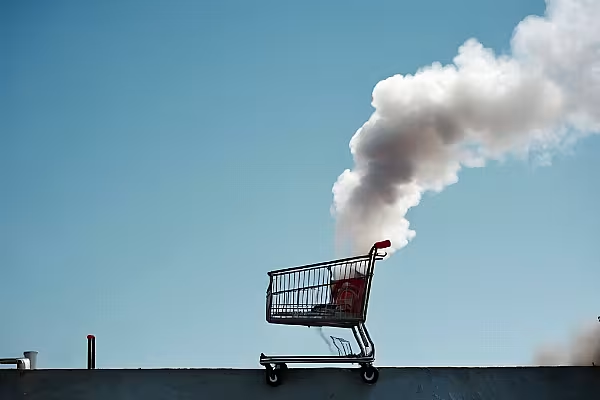Scope 1 and 2 emissions account for just 2% of the total emissions output of the European retail and wholesale sector, a new study by Oliver Wyman and EuroCommerce has found.
Launching their findings at an event in Brussels, Oliver Wyman and EuroCommerce said that the retail and wholesale sector emits some 1.6 gigatonnes of CO2e – equal to one-third of Europe’s carbon footprint – each year, a minimal amount of which are as a result of direct operations.
In contrast, Scope 3 emissions, resulting from activities by producers and manufacturers along value chains, as well as the energy consumed after the purchase of a product, account for 98% of total emissions in European retail and wholesale.
The study, which focused on several subsectors of retail and wholesale – food and beverage; health and beauty; textile and apparel; and consumer electronics, home and DIY, analysed the carbon footprint of the European retail and wholesale value chains, and included contributions from more than 25 leading companies and business associations.
'Opportunities And Challenges'
“This study illustrates both the opportunities and the challenges for the European retailers and wholesalers in their efforts to reduce their carbon footprint," commented Christel Delberghe, director general for EuroCommerce.
"While the sector connects hundreds of thousands of local and global suppliers with several hundred million European consumers, only 2% of carbon emissions are within its direct control. This means that making any significant step-change in decarbonisation will require much more collaboration and common standards across the entire value chain. Dedicated approaches will be necessary for SMEs, who lack the resources and capability that large companies enjoy.”
According to the report, while many retailers and wholesalers have made 'significant progress' in tracking and reducing emissions at Scope 1 and 2 level, the findings indicate a need for firms to 'step up' their efforts in order to achieve net zero across the industry.
The study identifies eight key success factors for accelerating the journey towards net zero: a harmonised methodology for calculating Scope 3 emissions, improved access to supply chain and consumption data, a clear and reliable regulatory framework, rapid scaling of current decarbonisation measures, advancements in technology and infrastructure, increased consumer adoption of sustainable choices, sophisticated ESG company operating models, and enhanced end-to-end collaboration.
More Standardisation Needed
“The current variation of calculation standards for Scope 3 emissions is astonishing and calls for more standardisation on a European level and beyond," added Rainer Münch, partner and head of retail and consumer goods, Europe, Oliver Wyman.
"Our joint study also highlights opportunities for companies to evolve their ESG operating model to make their decarbonisation more effective. At the same time, achieving net zero will continue to depend on technology innovations and evolving consumer demand.” [Image: 123RF/AI Image Generator]














